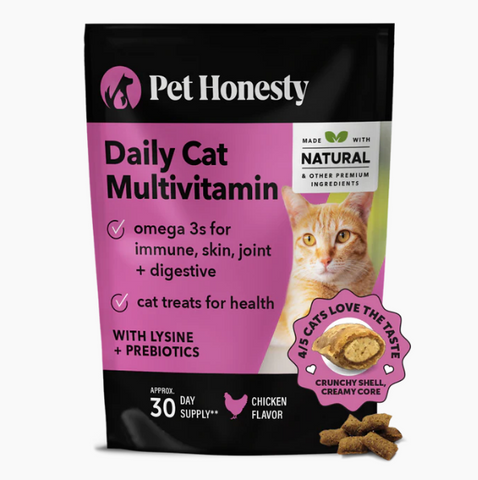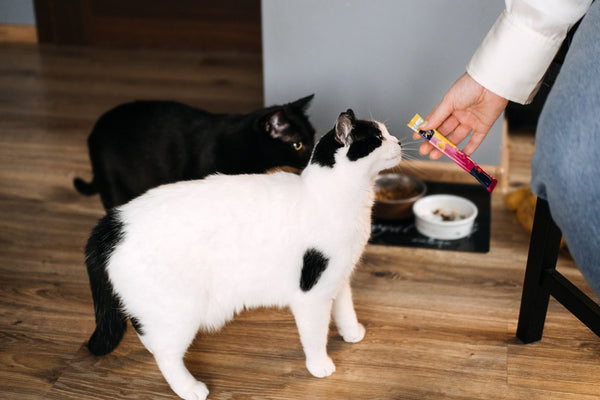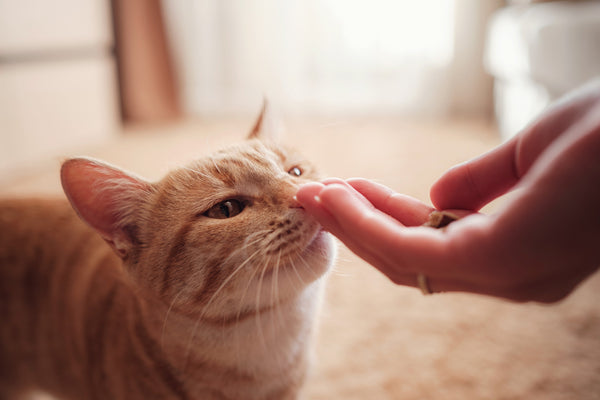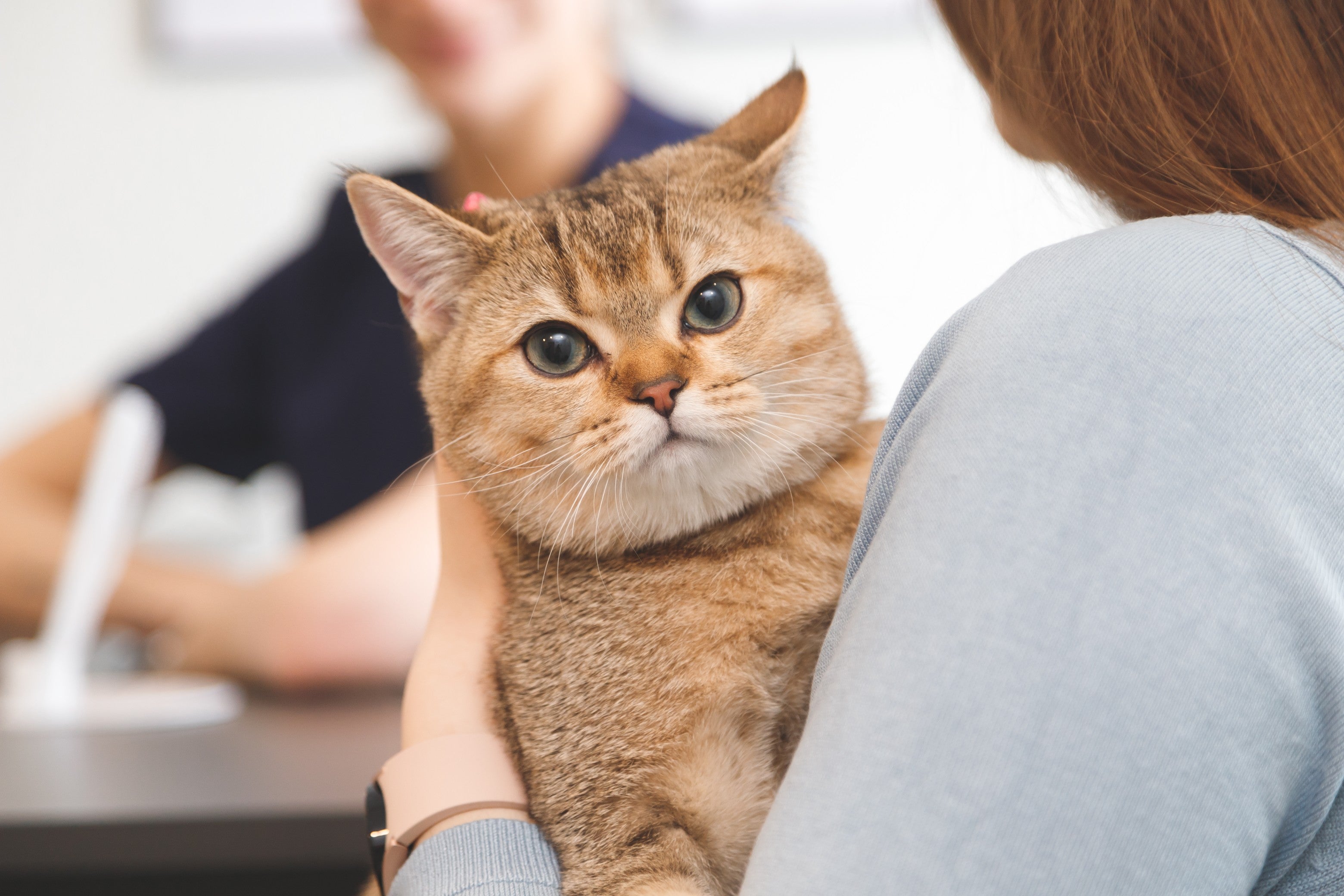In the animal kingdom, felines are the epitome of grace, agility, and independence. But even the most independent of cats rely on us, their human counterparts, for something crucial in life – a balanced diet.
While many cat owners are diligent about feeding their pets the right foods, the conversation around multivitamins has a new spotlight. This article wades into the sometimes murky waters of pet nutrition, specifically discussing the potential long-term benefits of incorporating high-quality multivitamins into your cat's meal routine.
The Essential Nature of Feline Nutrition
Cat nutrition is a vast and intricate topic, with a plethora of studies emphasizing the importance of a well-rounded diet. In the wild, cats are obligate carnivores, which means they require a diet based on high-quality animal protein supplemented with other essential nutrients found in the digestive tract of prey. This natural diet sets the bar for what our domestic feline friends require in terms of nutrition.
However, the reality is that not all cats can consume an ideal diet. Factors such as medical conditions and lack of nutrients in commercial pet foods can result in nutritional imbalances.
Why Consider Multivitamins for Cats?
There are significant reasons to consider adding multivitamins to your cat's diet, one being to ensure your pet's long-term well-being. Cats, like humans, require a multitude of vitamins and minerals to maintain optimal health. These nutrients play a critical role in various bodily functions, from the immune system to bone health.
While the common understanding is that commercial cat food is formulated to meet all of a feline’s dietary requirements, the quality and quantity of ingredients can vary widely. Therefore, a lot of cats might not be meeting their daily neutral needs through commercial pet food alone.
Additionally, each cat is unique, with individual health issues, life stages, and activity levels, which may necessitate an adjustment in their nutritional needs.

Benefits of Multivitamins for Felines
The potential benefits of adding multivitamins to your cat's meals are numerous and could have a profound impact on its health over the long term. Supplementing your cat's diet can ensure a balanced diet and improve many aspects of their health, including:
Improved Immune System
A robust immune system is essential for staying healthy and for warding off illnesses and infections. Multivitamins can provide an extra layer of protection by ensuring that your cat's body has an optimal level of nutrients to support immune function.
Healthier Skin and Coat
One of the most visible signs of a well-nourished cat is its coat. A shiny, sleek coat is indicative of positive health, and multivitamins rich in omega-3 and omega-6 fatty acids can enhance the condition of your cat's skin and fur.
Enhanced Energy Levels
The right balance of vitamins and minerals can provide your cat with a consistent source of energy. This treatment can be particularly beneficial for older cats or those recovering from illness who may have lower energy levels.
Choosing the Right Multivitamins for Your Cat
Not all multivitamins for pets are created equal, so it's important to select a supplement that is appropriate for your cat. When considering a multivitamin, look for products designed specifically for felines, as cats have different requirements from dogs and other animals.
Factors to Consider
- Formulation: The supplement should contain essential vitamins and minerals, such as vitamins A, B, C, D, E, and K, as well as trace elements like zinc, selenium, and iron.
- Quality: Look for a multivitamin made by a reputable manufacturer. High-quality supplements often undergo testing and adhere to strict quality standards.
- Suitability: Consider your cat's age and any specific health concerns. There are multivitamins tailored for kittens, adult cats, and seniors, as well as those designed to support urinary, digestive, or joint health.
Consulting with a Veterinarian
Before starting any new supplement regimen, consulting your veterinarian is strongly recommended. They can advise you on whether your cat requires additional vitamins and minerals, help you choose a suitable product, and discuss the appropriate dosage for your pet's individual needs.
Essential Vitamins For Your Cat
While multivitamins can provide a comprehensive blend of essential vitamins and minerals, some specific nutrients are especially important for feline health.
- Vitamin A: Essential for vision, immune function, and growth. It is found in liver, fish oil, dairy products, and egg yolks.
- Vitamin B: Vital for energy metabolism and nerve function. It can be found in meat, fish, eggs, and dairy products.
- Vitamin D: Crucial for bone health and immune function. Cats obtain vitamin D from sun exposure and dietary sources such as fish oil or egg yolks.
- Vitamin E: An antioxidant that supports immune function and skin health. Found in vegetable oils, nuts, seeds, and green leafy vegetables.
- Vitamin K: Necessary for blood clotting and bone health. Found in liver, fish, and dairy products.
-
Calcium: Strong calcium levels are essential for strong bones and teeth. It can be found in dairy products, bone meal, and some leafy greens. On the other hand, low calcium and phosphorus levels can lead to nutritional imbalances and bone health problems.

Integrating Multivitamins into Your Cat's Routine
Adding multivitamins to your cat's diet should be a gradual and controlled process to avoid any potential digestive upset. Here are some tips for successful incorporation:
- Start slowly by introducing a small portion of the recommended dosage over a few days.
- Mix the supplement well with wet food or a treat your cat loves.
- Over time, increase the amount of the supplement until your cat is consuming the full dose.
- Be consistent with the supplementation to allow for the most significant long-term health benefits.
Monitoring and Adjusting as Needed
After you've integrated multivitamins into your cat's routine, it’s crucial to monitor your pet and be observant of any changes in behavior, health, or appetite. If you notice anything out of the ordinary, consult your veterinarian, as it may be necessary to adjust the type of supplements or amount of vitamins your cat is consuming.
FAQS
Q: Can I just give my cat human multivitamins?
A: No, it's not recommended, as the dosage and formulation of vitamins for humans may be harmful to cats.
Q: How do I know if my cat needs multivitamins?
A: Consult with your veterinarian to determine if your cat has any specific deficiencies or health concerns that could benefit from supplementation.
Q: Can multivitamins replace a balanced diet for my cat?
A: No, multivitamins should be used as a supplement and not a replacement for a healthy, balanced diet.
Q: Are there any risks to giving my cat multivitamins?
A: It's essential to consult with your veterinarian before starting any new supplement regimen, as some vitamins can be toxic in high doses.
Q: Can kittens take the same multivitamin as adult cats?
A: No, kittens have different nutritional needs and should have a multivitamin specifically formulated for their age.
Q: Can I give my senior cat the same multivitamin as my younger cat?
A: It's best to choose a multivitamin that is tailored for seniors, as they may have different nutritional requirements.
Q: How long does it take to see any benefits from giving my cat multivitamins?
A: The effects of multivitamins can vary, but noticeable improvements in energy levels and overall health can be seen within a few weeks to months.
Q: Can multivitamins help with my cat's skin and coat health?
A: Yes, certain vitamins, such as omega-3 fatty acids, can improve the condition of your cat's skin and coat.

Q: Is it safe to give my cat a multivitamin every day?
A: It's important to follow the recommended dosage on the product label or as advised by your veterinarian to ensure safety and effectiveness.
Q: Can multivitamins prevent my cat from getting sick?
A: Multivitamins can support immune function, but they do not guarantee immunity from all illnesses.
Q: Does my cat need vitamin C?
A: Cats can produce their vitamin C, so supplementation is not necessary unless advised by a veterinarian for a specific health condition.
Q: Are there any side effects of giving my cat multivitamins?
A: In general, when given correctly and in the recommended amount and dosage, multivitamins should not have any adverse effects. However, if you notice any changes in your cat's behavior or health, consult your veterinarian.
Q: Can I give my pregnant cat multivitamins?
A: It's crucial to consult with your veterinarian before giving any supplements to a pregnant or nursing cat, as it can affect both the mother and kittens.
Q: Can I give my cat a multivitamin if they have a health condition?
A: It's essential to consult with your veterinarian before giving supplements to a cat with any health condition, as it may interact with medications or aggravate symptoms of their condition.
Q: Can multivitamins help prevent dental problems in cats?
A: While they cannot replace proper dental care, certain vitamins can support oral health and prevent dental issues in cats.
Prioritizing Your Cat's Nutrition
The long-term benefits of adding multivitamins to your cat's meal routine can be substantial, contributing to a healthier, happier feline companion.
Understanding the role of multivitamins in feline nutrition can empower you to make informed choices. It's a small, proactive step that can potentially lead to a lifetime of well-being for your four-legged friend.













